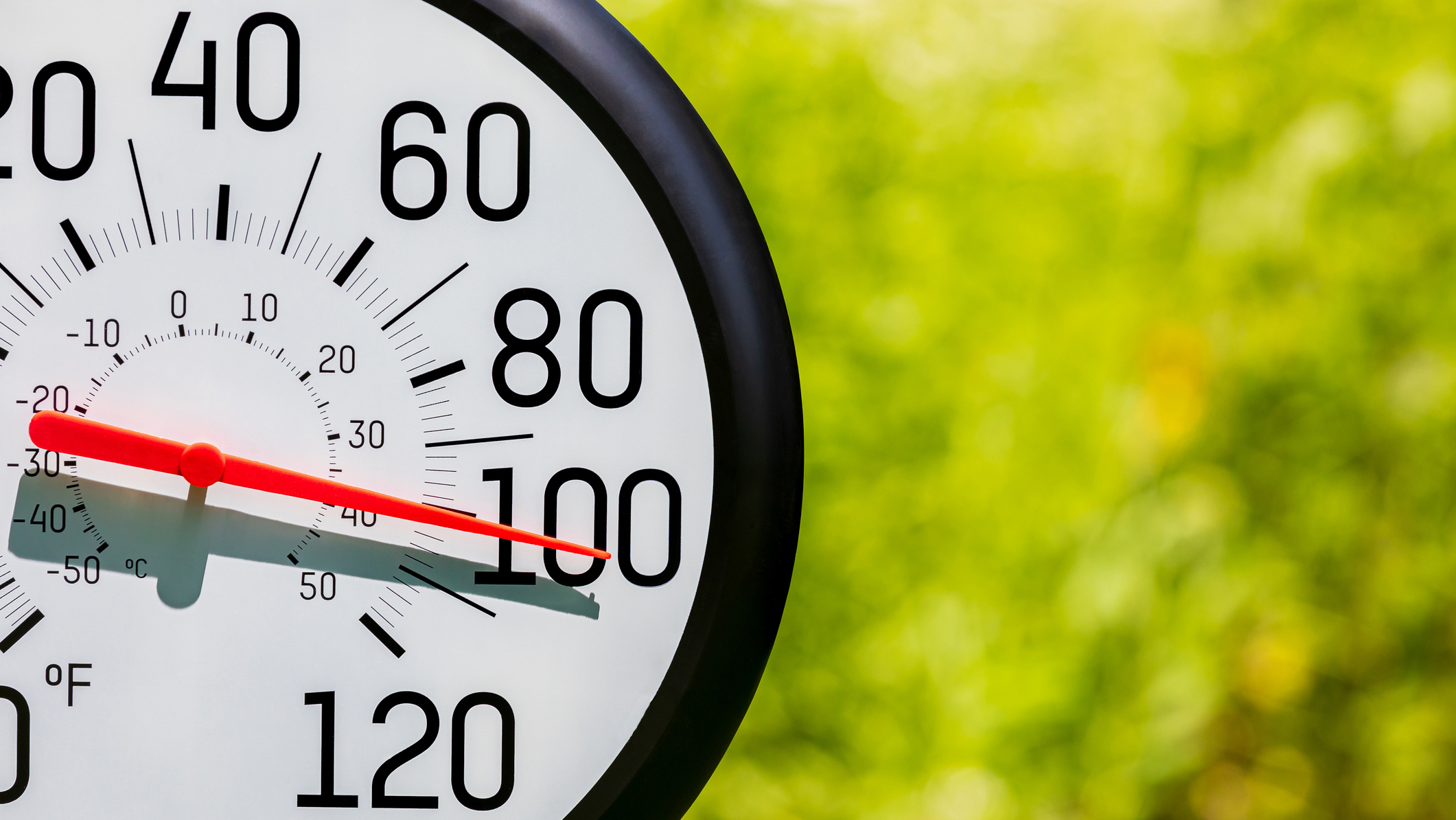INSIDE GGC
Heat and air quality safety: Stay cool, breath easy and stay safe

As temperatures rise, it is not just the heat we have to worry about. Air quality often worsens during hot weather, especially in urban or high-pollution areas. Heat-related illness and poor air quality can seriously affect your health and safety. This month’s safety update highlights keys to protecting yourself both on the job and at home.
On the job: Stay cool and protect your lungs
Be prepared and aware
- Links to three Heat Forecast pages that provide the National Oceanic and Atmospheric Administration actual forecast for Max Temperatures and Heat Index for the next 3 days using zoomed in maps, in addition to showing the probability (% chance) of exceeding a specific temperature (and Heat Index) threshold.
Hydrate often
- Drink water every 15–20 minutes, even if you are not thirsty.
- Avoid caffeine and sugary drinks that can increase dehydration.
Dress for the heat
- Choose light, breathable clothing and wear a wide-brimmed hat and sunscreen (SPF 30+).
- Use umbrellas, sun sails, canopies or other sun shelters when outside for long periods of time.
Adjust work hours
- Schedule intense tasks during cooler parts of the day.
- Use shaded or air-conditioned break areas.
Know the warning signs
- Heat exhaustion: Headache, dizziness, heavy sweating and nausea.
- Heat stroke: Confusion, loss of consciousness or hot/dry skin. Call 911 immediately.
Air Quality Index (AQI) awareness
What is AQI?
AQI is a measure of air pollution. It ranges from 0 (good) to 500 (hazardous). During heat waves, ozone and particulate pollution often increase, which can worsen breathing and heat stress.
Follow us on Instagram to get weekly AQ outlooks and more at @bear_aware_ggc.
| AQI Level | Meaning | Action Steps |
| 0-50 | Good | No precautions needed |
| 51-100 | Moderate | Sensitive groups should monitor symptoms |
| 101-150 | Unhealthy for sensitive groups | Limit prolonged outdoor work |
| 151-200 | Unhealthy | Everyone should reduce strenuous activity |
| 201+ | Very unhealthy/hazardous | Stay indoors; masks and filtered air recommended |
Protect yourself
- Check the AQI daily (Georgia Air Monitoring or download the EPA Air Quality App).
- Use N95 masks if you must work outdoors during poor air quality.
- Reduce outdoor exposure when AQI is over 100, especially if you have asthma, heart conditions or are pregnant.
At home: Beat the heat and bad air
Cool smart
- Keep blinds closed during the day.
- Use fans, AC, and cool showers to stay comfortable.
Clean indoor air
- Use High-Efficiency Particulate Air or carbon air filters.
- Avoid burning candles, incense, or other air fresheners, and frying indoors on bad AQI days.
Limit outdoor activity
- Reschedule workouts or errands when AQI or heat is high.
- Check on family, especially older adults, children and pets.
Stay informed
- Sign up for local AQI and heat alerts.
- Know your local cooling centers or shelters.
What to do in a heat or air emergency
If someone shows signs of heat stroke or severe breathing distress:
- Call 911 immediately.
- Move them to a cool, shaded place.
- Apply cool water and fan them if overheated.
- Offer water if conscious.
- Use inhalers or oxygen if prescribed and symptoms worsen from poor air quality.
Resources and contacts
- Air quality tracker: Georgia Air Monitoring or download the EPA Air Quality app
- Occupational Safety and Health Administration Heat Safety information
- GGC Environmental Health and Safety: @email or 678-407-5122
Stay alert, hydrated and informed. Your health and safety matters at work, at home and everywhere in between.
This message was brought to you by Georgia Gwinnett College's Environmental Health and Safety team.
